Michael J. Behe's Blog, page 146
November 2, 2021
At Mind Matters News: University of Chicago biochemist: All living cells are cognitive
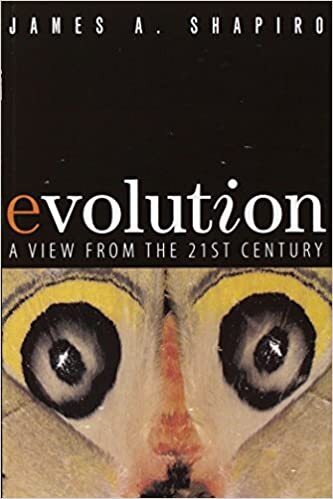
James Shapiro’s recent paper points out, with examples, that bacteria meet the Oxford English Dictionary’s definition of “cognitive”:
One of the most interesting examples he gives is quorum sensing. At one time, researchers had no idea bacteria were talking to each other about the narrow range of topics that interest bacteria — but talking to each other nonetheless:
News, “University of Chicago biochemist: All living cells are cognitive” at Mind Matters News
—
The best-known form of interbacterial communication has come to be labelled “quorum sensing” (QS) because it serves to inform a population if it has achieved a critical density for making a regulatory decision (i.e., a quorum). Quorum sensing occurs when the bacteria secrete a chemical “quorum signal” in an autoinduced positive feedback loop but only produce a coordinated multicellular response output when the signal’s concentration exceeds a critical threshold. Quorum sensing is similar to autocrine signalling in complex eukaryotes, and it activates many different processes. The quorum signals come in many chemical forms, and have potential for great specificity, but some signals are also common to multiple types of bacteria, allowing interspecific communication as well.
James A. Shapiro, All living cells are cognitive, Biochemical and Biophysical Research Communications, Volume 564, 2021, Pages 134-149, ISSN 0006-291X, https://doi.org/10.1016/j.bbrc.2020.0....
Shapiro is also the author of Evolution: A View from the 21st Century (2013).
It’s awe-inspiring to realize that there is a complex intelligence in every living cell. Two questions arise: Is it the intelligence of the cell? That seems inconsistent with how we usually use the word “intelligence.” If we see that a one-celled life form functions with lot of intelligence, perhaps it is more like a book that contains great ideas. Paper doesn’t create ideas; neither, by itself, does protoplasm. Something else is at work.
Takehome: Future debates over origins of intelligence, consciousness, etc., may mainly feature panpsychists vs. theists rather than materialists vs. theists.
See also: Why do many scientists see cells as intelligent? Bacteria appear to show intelligent behavior. But what about individual cells in our bodies?
You may also wish to read more on the growth of panpsychism as a movement in science:
Scientific American explores panpsychism… respectfully. This is a major change. At one time, a science mag would merely ridicule the idea of a conscious universe. Make no mistake, panpsychism—as Goff elucidates it—is a purely naturalist view (“nothing supernatural or spiritual”). But, unlike the village atheist, he goes on to ask, but then what IS nature? Matter is all there is? But what IS matter? It turns out, no one really knows.
Why would a neuroscientist choose panpsychism over materialism? It seems to have come down to a choice between “nothing is conscious” and “everything is conscious.”
How a materialist philosopher argued his way to panpsychism. Galen Strawson starts with the one fact of which we are most certain — our own consciousness. To Strawson, it makes more sense to say that consciousness is physical — and that electrons are conscious — than that consciousness is an illusion.
Theoretical physicist slams panpsychism Electrons cannot be conscious Sabine Hossenfelder’s view because they cannot change their behavior. Hossenfelder’s impatience is understandable but she underestimates the seriousness of the problem serious thinkers about consciousness confront. There is a reason that some scientists believe that the universe is conscious: It would be more logically coherent to say that you think the universe is conscious than to say that your own consciousness is an illusion. With the first idea, you may be wrong. With the second idea, you are not anything.
Philosopher: Panpsychism is not in conflict with physics at all
Responding to criticism from physicists Sabine Hossenfelder and Sean Carroll, Philip Goff points out that panpsychism is not a dualist perspective. Philip Goff sees panpsychism (consciousness pervades all nature) as offering a simpler view of physics than dualism, with fewer gaps than materialism.
Why is science growing comfortable with panpsychism (“everything is conscious”)? At one time, the idea that “everything is conscious” was the stuff of jokes. Not any more, it seems. A recent article at New Scientist treats panpsychism as a serious idea in science. That’s thanks to the growing popularity of neuroscientist Giulio Tonioni’s Integrated Information Theory (IIT), which offers the opportunity for mathematical modeling, along with the implication that inanimate matter and/or the universe may be conscious. If IIT continues to gain a sympathetic hearing, panpsychism could become, over time, a part of normal science.
Copyright © 2021 Uncommon Descent . This Feed is for personal non-commercial use only. If you are not reading this material in your news aggregator, the site you are looking at is guilty of copyright infringement UNLESS EXPLICIT PERMISSION OTHERWISE HAS BEEN GIVEN. Please contact legal@uncommondescent.com so we can take legal action immediately.Plugin by Taragana
At Mind Matters News: Neuroscientist: Nervous systems alone do not cause consciousness
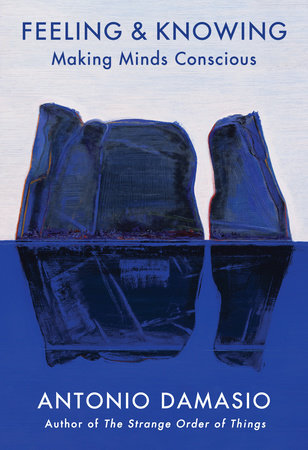
Antonio Damasio, author of Feeling & Knowing (2021), points to the whole body as involved in consciousness:
Prominent neuroscientist Antonio Damasio,considered “a leader in understanding the biological origin of consciousness,” wrote in The Scientist yesterday that “The idea that minds and consciousness might be generated by the nervous system alone is false. In his view, the whole body is involved in consciousness:…
Damasio’s approach to consciousness leans heavily on homeostasis, the constant self-balancing of a life form to stay in existence. Briefly, he argues for being, feeling, and knowing as three stages of the evolution of life forms, replicated in the intellectual development of a human being. Bacteria, which do not require a nervous system, exemplify being. Life forms that started around 500 million years ago (roughly, the Cambrian Explosion) feature feeling (and thus some level of consciousness): …
From the excerpt — which we must assume to be representative — Damasio accounts for human consciousness (“the word”) explicitly without any need for underlying intelligence in the universe (no “word”) by pointing to such features of life forms as homeostasis and avoidance of death. But he does not show how those features are a bridge to human consciousness. We want to account for Albert Einstein, Mother Theresa, and Gautama Buddha, — and innumerable others of our kind. Not for why humans, like amoebas, regulate our systems and strive to avoid death. Those may be mysteries in themselves but they are more tractable ones.
News, “Neuroscientist: Nervous systems alone do not cause consciousness” at Mind Matters News
Takehome: One-celled intelligence aside, it’s unclear how Antonio Damasio’s ladder of consciousness, built on self-balancing and death avoidance, gets us the human mind.
You may also wish to read: Why do many scientists see cells as intelligent? Bacteria appear to show intelligent behavior. But what about individual cells in our bodies?
Copyright © 2021 Uncommon Descent . This Feed is for personal non-commercial use only. If you are not reading this material in your news aggregator, the site you are looking at is guilty of copyright infringement UNLESS EXPLICIT PERMISSION OTHERWISE HAS BEEN GIVEN. Please contact legal@uncommondescent.com so we can take legal action immediately.Plugin by Taragana
November 1, 2021
A thoughtful critique of Philip Goff’s panpsychism
Reader Umar Nasser of Rational Religion responds to panpsychist Philip Goff, whose contention is that “Panpsychism is not in conflict with physics.” Nasser has read Goff’s book, Galileo’s Error: Foundations for a New Science of Consciousness, and focuses his comments on that:
“I enjoyed this book. It basically seeks to introduce, develop and advance the major issues in the debates over consciousness today. The book has a number of strengths:
Super easy to read – all well explainedVery well structuredGives a reasonably fair critique of each of the views (see more below)Last chapter on wider spiritual/cultural implications wasn’t necessary but a good touch in the end.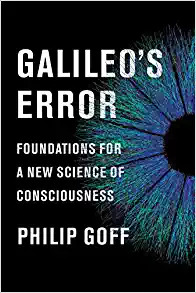
So basically, if you want a good introduction to these topics that’s easy to read, get this book. I’m putting that as the TLDR cos I don’t want my personal criticisms of Goff’s thesis to obscure the fact that this is generally good and was clear enough to critique! A rare talent amongst philosophers 
I’ll now get into specific criticism of Goffs’ case. His thesis is essentially the following.
1) Consciousness is a primary fact of our personal realities
2) Materialism can’t explain it
3) Dualism can but it has issues
4) Panpsychism can explain it, and explains it better than dualism.
I think he falls down on (3) & (4). In fact, I was quite disappointed at his treatment of dualism. I felt like he listed some objections against it but didn’t really seek to give counter-objections, as it might hold up too well as compared to his preferred option of panpsychism.
But first while I think he makes a decent case for some kind of panpsychism, his specific suggestion – that matter IS consciousness – doesn’t stand up well to scrutiny. Accepting this would be to accept that consciousness-as-matter can be measured quantitatively – it being a few microns across, having extension and other physical characteristics. However this misses the whole point of consciousness – that it is qualitative and experiential. Goff isn’t unaware of this, so it’s strange he tries to physicalise consciousness in this way – while at the same criticising the physicalists for doing something similar.
Next we can come on to his lacklustre criticisms of dualism. His main objection is that neuroscience can’t find evidence of mind-brain interaction. This seems a bit absurd — the typical dualist claim is that the mind/soul causes physical events in the brain, and vice versa — meaning that dualism can account for every datum in neuroscience. As for evidence specifically for the mind/soul producing changes in the brain, this is hardly wanting. We have ample evidence of directed agency causing brain changes. This is most vividly recorded in studies on how psychological therapies cause brain changes through neuroplasticity — obvious examples being CBT and OCD (see Jeffrey Schwartz for the latter). The neuroplasticity seen in stroke rehabilitation is another example, where stroke doctors note that motivation and emotional support is hugely important in the road to brain recovery. That is — the ‘will’ affects the brain.
(The materialist may say that this is the brain acting upon itself, but since they really don’t acknowledge consciousness anyway, they don’t have a leg to stand on).
Part of the issue was that Goff critiqued Cartesian Dualism very specifically, with biology seen as an inhabited machine — not something many dualists today (including most of the world’s religious dualists) would subscribe to at all. Religious dualists typically see the soul and the body as mutually interacting and shaping each other — hence all the religious teachings on how to wash, what to eat, the physical motions of prayer etc… the idea is that the body affects the soul, and the soul the body. Descartes was in a very specific tradition and had very idiosyncratic views about the body of humans and animals as being machines. It’s a bit of a strawman to critique his views alone, which is essentially what Goff did.
The next issue I had was that I think Goff is a bit optimistic about the ‘combination problem’ being solved. How the different atoms of a living being suddenly link up their mini-conscious states and produce a unified whole, a self with agency that no longer depends on the specific substrate that produced it, is extraordinary. Goff believes that this problem will be solved through inter-disciplinary efforts in empirical science. This is strange given that this is not something which empirical science will really shed much light on, given its physically inaccessible and obscure nature. Our tools, which are physical, are not going to be enough. After all, the same issue has bedevilled materialists for 500 years, and their promises are wearing thin.
Personally, I think that panpsychism is true, but that you can’t automatically get living conscious agency from individual, mildly conscious atoms. You have to posit the emergence of a new ‘substance’, ie: a soul. Which means that I think substance dualism is a radically emergent phenomenon in a panpsychist universe.
As to how this happens? Like with every transformation in nature, I think that one has to rely on a fundamental conscious entity, or should I say…
The Fundamental Conscious Agency 
Happy reading!”
You may also wish to read: At Mind Matters News: Philosopher: Panpsychism is not in conflict with physics at all. Remember Egnor ’s Principle: If your hypothesis is that your mind is an illusion, then you do not have a hypothesis. The panpsychists want to have a hypothesis. They want to include consciousness as a real fact in nature while avoiding dualism.
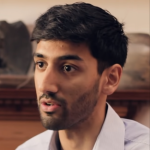
Umar Nasser is a junior doctor who writes on atheism, religion and society. He is a co-founder of Rational Religion. A public speaker on religion in the contemporary world, Umar has coordinated anti-radicalisation event campaigns across UK universities. He was once a street magician, but has since decided that there are more than enough tricksters in the world.
Copyright © 2021 Uncommon Descent . This Feed is for personal non-commercial use only. If you are not reading this material in your news aggregator, the site you are looking at is guilty of copyright infringement UNLESS EXPLICIT PERMISSION OTHERWISE HAS BEEN GIVEN. Please contact legal@uncommondescent.com so we can take legal action immediately.Plugin by Taragana
Researcher: Biology transcends the limits of computation
Life starts out, says Perry Marshall, as information, not chemicals:
Abstract: Cognition-sensing and responding to the environment-is the unifying principle behind the genetic code, origin of life, evolution, consciousness, artificial intelligence, and cancer. However, the conventional model of biology seems to mistake cause and effect. According to the reductionist view, the causal chain in biology is chemicals > code > cognition. Despite this prevailing view, there are no examples in the literature to show that the laws of physics and chemistry can produce codes, or that codes produce cognition. Chemicals are just the physical layer of any information system. In contrast, although examples of cognition generating codes and codes controlling chemicals are ubiquitous in biology and technology, cognition remains a mystery. Thus, the central question in biology is: What is the nature and origin of cognition? In order to elucidate this pivotal question, we must cultivate a deeper understanding of information flows. Through this lens, we see that biological cognition is volitional (i.e., deliberate, intentional, or knowing), and while technology is constrained by deductive logic, living things make choices and generate novel information using inductive logic. Information has been called “the hard problem of life” and cannot be fully explained by known physical principles (Walker et al., 2017). The present paper uses information theory (the mathematical foundation of our digital age) and Turing machines (computers) to highlight inaccuracies in prevailing reductionist models of biology, and proposes that the correct causation sequence is cognition > code > chemicals.
Marshall P. Biology transcends the limits of computation. Prog Biophys Mol Biol. 2021 Oct;165:88-101. doi: 10.1016/j.pbiomolbio.2021.04.006. Epub 2021 May 5. PMID: 33961842.
The paper is open access.
Hat tip: Philip Cunningham
Copyright © 2021 Uncommon Descent . This Feed is for personal non-commercial use only. If you are not reading this material in your news aggregator, the site you are looking at is guilty of copyright infringement UNLESS EXPLICIT PERMISSION OTHERWISE HAS BEEN GIVEN. Please contact legal@uncommondescent.com so we can take legal action immediately.Plugin by Taragana
Researchers: Unusual island life forms may have been genetically pre-coded to vary
No, that’s not Darwinians but the researchers either don’t realize it or –- faced with far-fetched alternative explanations – don’t care:
Choi et al., publishing in PNAS, have proposed a very un-Darwinian account of how “spectacular adaptive radiations” occur on oceanic islands such as Hawaii. This has been a “paradox of evolutionary biology,” they admit. Maybe the diversity is an outworking of “ancient polymorphisms” of ancestors with a rich gene pool —
“Some of the most spectacular adaptive radiations of plants and animals occur on remote oceanic islands, yet such radiations are preceded by founding events that severely limit genetic variation. How genetically depauperate founder populations give rise to the spectacular phenotypic and ecological diversity characteristic of island adaptive radiations is not known. We generated genomic resources for Hawaiian Metrosideros — a hyper-variable adaptive radiation of woody taxa — for insights into the paradox of remote island radiations. We posit that divergent selection and differential sorting of an unexpectedly rich pool of ancestral variation drove the diversification of lineages. Recurring use of ancient variants from a richer-than-expected gene pool may explain how lineages can diversify to fill countless niches on remote islands.”
There’s a hypothesis you may wish to consider. The genetic diversity was already present in the ancestors! Before now, evolutionists have assumed that an organism will have only the genes it needs to survive. If, instead, the ancestors had a “richer-than-expected gene pool” when they entered a new habitat, adaptive radiation amounts to a sorting out of existing information, not the creation of new information by neo-Darwinism’s mutation/selection process.
Evolution News, “Non-Darwinian Adaptive Radiation Proposed” at Evolution News and Science Today (October 26, 2021)
Significance: Some of the most spectacular adaptive radiations of plants and animals occur on remote oceanic islands, yet such radiations are preceded by founding events that severely limit genetic variation. How genetically depauperate founder populations give rise to the spectacular phenotypic and ecological diversity characteristic of island adaptive radiations is not known. We generated genomic resources for Hawaiian Metrosideros––a hyper-variable adaptive radiation of woody taxa—for insights into the paradox of remote island radiations. We posit that divergent selection and differential sorting of an unexpectedly rich pool of ancestral variation drove the diversification of lineages. Recurring use of ancient variants from a richer-than-expected gene pool may explain how lineages can diversify to fill countless niches on remote islands.
Of course, that makes sense and would be a useful subject of research. It’s only disadvantage is that it isn’t Darwinian.
The paper is closed access.
Copyright © 2021 Uncommon Descent . This Feed is for personal non-commercial use only. If you are not reading this material in your news aggregator, the site you are looking at is guilty of copyright infringement UNLESS EXPLICIT PERMISSION OTHERWISE HAS BEEN GIVEN. Please contact legal@uncommondescent.com so we can take legal action immediately.Plugin by Taragana
At Mind Matters News: Jonathan Bartlett Coming to the Defense of Classical Logic
Bartlett reminds us, classical logic belongs to everyone and can be equally wielded by anyone:
It seems odd that classical logic would need defending, but, in modern times, this seems to indeed be the case. Many modern scholars see the need for demoting the place of classical logic and viewing it as an aspect of western cultural imperialism. In reality, classical logic is a gift to civilization. It was created in the classical west, but its benefit is that it belongs to everyone and can be equally wielded by anyone who chooses to do so.
Many criticisms of classical logic, like criticisms of mathematics, have both valid and invalid complaints. It is true that many people use classical logic incorrectly, and then use the authority of classical logic as the justification for problematic statements. In logic, all inferences flow from a set of assumptions, which logic itself does not justify. It is easy to create a logical inference from bad assumptions, and then claim that your results are just “logical deductions” from the truth. However, it is difficult to blame classical logic itself on this, as there is not any system of inference that is capable of preventing its misuse, and none have even been proposed as such.
The benefit that classical logic has, though, is that it has sufficient tools to evaluate its own usage. That is, if logic is being misapplied against you, better logic can be applied in your favor. Because the rules of logic are explicit, known, understandable, and agreed upon, this provides the means for someone who is having bad logic used against them to respond in their own defense. News, “Coming to the Defense of Classical Logic” at Mind Matters News
Takehome: What makes classical logic especially important is that it creates an equal playing field, giving peasants the tools and rules to override kings and queens.
The war on math isn’t going to do anything similar for students. Quite the opposite. And the only question now is, is that a bug or — in reality, a feature?
You may also wish to read: Yes, there really is a war on math in our schools. Pundits differ as to the causes but here are some facts parents should know.
and
Further dispatches from the war on math (September 14, 2021) Discussions of social policy where math is relevant can be useful. But a student who does not understand how an equation works will fail at both math AND social policy.
Copyright © 2021 Uncommon Descent . This Feed is for personal non-commercial use only. If you are not reading this material in your news aggregator, the site you are looking at is guilty of copyright infringement UNLESS EXPLICIT PERMISSION OTHERWISE HAS BEEN GIVEN. Please contact legal@uncommondescent.com so we can take legal action immediately.Plugin by Taragana
October 31, 2021
Casey Luskin on Harari’s Sapiens: A Brief History of Humankind
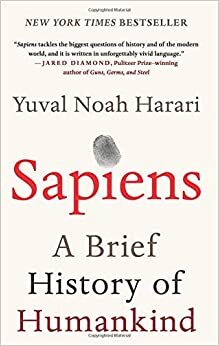
Yuval Noah Harari is a classic TED talk materialist historian and his 2015 book Sapiens: A Brief History of Humankind is vintage, as Casey Luskin explains:
“Evolution moulded our minds and bodies to the life of hunter-gatherers” (p. 378) — then there’s no reason to expect that we should need to evolve the ability to build cathedrals, compose symphonies, ponder the deep physics mysteries of the universe, or write entertaining (or even imaginative) books about human history. Why should these things evolve? He said it, not me: “Frankly, we don’t know.”
Here’s something else we don’t know: the genetic pathway by which all of these cognitive abilities evolved (supposedly). Now you probably won’t appreciate this fact if you read Sapiens, because Harari gives a veneer of evolutionary explanation which really amounts to no explanation at all. Here’s what he says:
“The appearance of new ways of thinking and communicating, between 70,000 and 30,000 years ago, constitutes the Cognitive Revolution. What caused it? We’re not sure. The most commonly believed theory argues that accidental genetic mutations changed the inner wiring of the brains of Sapiens, enabling them to think in unprecedented ways and to communicate using an altogether new type of language. We might call it the Tree of Knowledge mutation. Why did it occur in Sapiens DNA rather than in that of Neanderthals? It was a matter of pure chance, as far as we can tell. But it’s more important to understand the consequences of the Tree of Knowledge mutation than its causes. What was so special about the new Sapiens language that it enabled us to conquer the world?”
True, Harari admits that “We’re not sure” how all this happened. But he then proceeds to confidently assert that human cognitive abilities arose via “accidental genetic mutations” that “changed the inner wiring of the brains of Sapiens.” No discussion is attempted and no citation is given for exactly what these mutations were, what exactly they did, how many mutations were necessary, and whether they would be likely to arise via the neo-Darwinian mechanism of random mutation and natural selection in the available time periods.
Casey Luskin, “A Scientifically Weak and Ethically Uninspiring Vision of Human Origins: Review of Yuval Noah Harari’s Sapiens” at Discovery Institute (October 25, 2021)
Hey, where’s the turtleneck and the mike?
You may also wish to read: Michael Egnor’s take on Harari’s denial of free will: Is free will a dangerous myth? The denial of free will is a much more dangerous myth. It is the denial of free will, rather than the affirmation of it, that serves as the fundamental philosophical pretext for totalitarian oppression.
Copyright © 2021 Uncommon Descent . This Feed is for personal non-commercial use only. If you are not reading this material in your news aggregator, the site you are looking at is guilty of copyright infringement UNLESS EXPLICIT PERMISSION OTHERWISE HAS BEEN GIVEN. Please contact legal@uncommondescent.com so we can take legal action immediately.Plugin by Taragana
Scan a pumpkin, see a beautiful world of design
Footage from a Random Footage CT scan of a pumpkin from 2016:

And that’s a pumpkin, folks. Numerous other pattern shots at the same page, focusing on various other things inside the pumpkin, all different.
Here’s a vid from someone else from yesterday:
And a happy Eve of All Saints to you, too …
In case you missed it, Hallowe’en started out as the Eve of All Saints Day (November 1). The kids running down the street dressed as ghouls, the piles of tooth-rotting candy and the toilet paper in the trees… that all came later. Thank you for listening.
Copyright © 2021 Uncommon Descent . This Feed is for personal non-commercial use only. If you are not reading this material in your news aggregator, the site you are looking at is guilty of copyright infringement UNLESS EXPLICIT PERMISSION OTHERWISE HAS BEEN GIVEN. Please contact legal@uncommondescent.com so we can take legal action immediately.Plugin by Taragana
Canceled exoplanets prof Dorian Abbot at the Wall Street Journal
“I believe academic hiring should be based on merit and that hurt feelings are no reason to ban opinions::
I am a professor at the University of Chicago. I was recently invited to give an honorary lecture at the Massachusetts Institute of Technology. The lecture was canceled because I have openly advocated moral and philosophical views that are unpopular on university campuses.
Here are those views:
I believe that every human being should be treated as an individual worthy of dignity and respect. In an academic context, that means evaluating people for positions based on their individual qualities, not on membership in favored or disfavored groups. It also means allowing them to present their ideas and perspectives freely, even when we disagree with them.
I care for all of my students equally. None of them are overrepresented or underrepresented to me: They represent themselves. Their grades are based on a process that I define at the beginning of the quarter. That process treats each student fairly and equally. I hold office hours for students who would like extra help so that everyone has the opportunity to improve his or her grade through hard work and discipline.
Dorian Abbot, “The Views That Made Me Persona Non Grata at MIT” at Wall Street Journal (October 29, 2021)
Closed access unfortunately. But you get the picture. He thought what the Woke wanted was fairness. No, they want to Run Things according to whatever they would like to see happen.
By the way, here is the second installment of the Bret Weinstein saga at Evergreen University:
The thing is, at that time (2017), it was ultra-progressive places like Evergreen where the liberal biology teachers could be run off campus. Now it’s MIT, folks.
Abbot’s story is a watershed, really because MIT Cancelled a science prof whose anticipated lecture was irrelevant to Wokeness.
Either Woke goes or science does. But bureaucrats find it easier to cater to Woke than to resist. The more bureaucrats there are, the less university there will be.
You may also wish to read, re the Dorian Abbot affair:
Darwinian evolutionary biologist Jerry Coyne learns a thing or three about censorship – when he’s not doling it out. The explanation for Coyne’s sudden support for academic freedom might be fairly simple: He thought that Cancel Culture would only ever be deployed against people who think that nature shows evidence of design. He never expected it to come for people HE values.
Berkeley Scientist and center director resigns over MIT’s deplatforming of exoplanet scientist Note how little difference facts of science make in these matters — whether Abbot has anything to say that contributes to our knowledge does not matter of the Woke are displeased. Darwinism was the original Wokeness in science — immune to fact-based critique. The people who thought that that didn’t concern them are now formally wrong. It’s everywhere now.
Copyright © 2021 Uncommon Descent . This Feed is for personal non-commercial use only. If you are not reading this material in your news aggregator, the site you are looking at is guilty of copyright infringement UNLESS EXPLICIT PERMISSION OTHERWISE HAS BEEN GIVEN. Please contact legal@uncommondescent.com so we can take legal action immediately.Plugin by Taragana
At Mind Matters News: Philosopher: Panpsychism is not in conflict with physics at all
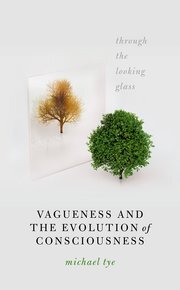
Responding to criticism from physicists Sabine Hossenfelder and Sean Carroll, Philip Goff points out that panpsychism is not a dualist perspective:
At IAI.tv, University of Durham philosophy prof Philip Goff tells us that “The world of academic philosophy has been rocked by the conversion of one of the most influential materialists of the last thirty years, Michael Tye, to a form of panpsychism (panprotopsychism) in his latest book. And the main annual UK philosophy conference held a plenary panel on panpsychism this year for the first time in its history.” That’s part of a pattern of the world of philosophy and science warming to panpsychism, the belief that either all entities or all living entities participate in consciousness.
Dr. Goff, author of Galileo’s Error: Foundations for a New Science of Consciousness, offers some thoughts on what panpsychism is and isn’t:
News, “Philosopher: Panpsychism is not in conflict with physics at all” at Mind Matters News
From his perspective, panpsychism is a philosophical interpretation of physics. It conflicts with interpretations like that of Max Tegmark, who argues that, at bottom, reality is “purely mathematical” and that of dualists like Angus Menuge who argue that reality has both physical and non-physical elements. Goff argues that panpsychism is simpler than dualism.
Okay, but why not just accept materialism, pure and simple? Because, as Analytical philosopher Galen Strawson pointed out, the one thing we are each most certain of is our own consciousness. Materialism, pressed for an answer, insists that consciousness is an illusion that “science will get to the bottom of.”
But what then? Remember Egnor ’s Principle: If your hypothesis is that your mind is an illusion, then you do not have a hypothesis.
The panpsychists want to have a hypothesis. They want to include consciousness as a real fact in nature while avoiding dualism.
Takehome: Philip Goff sees panpsychism (consciousness pervades all nature) as offering a simpler view of physics than dualism, with fewer gaps than materialism. His perspective appears to be catching on.
You may also wish to read more about how panpsychism is gaining a firmer foothold in science: Scientific American explores panpsychism… respectfully. This is a major change. At one time, a science mag would merely ridicule the idea of a conscious universe. Make no mistake, panpsychism—as Goff elucidates it—is a purely naturalist view (“nothing supernatural or spiritual”). But, unlike the village atheist, he goes on to ask, but then what IS nature? Matter is all there is? But what IS matter? It turns out, no one really knows.
Why would a neuroscientist choose panpsychism over materialism? It seems to have come down to a choice between “nothing is conscious” and “everything is conscious.”
How a materialist philosopher argued his way to panpsychism. Galen Strawson starts with the one fact of which we are most certain — our own consciousness. To Strawson, it makes more sense to say that consciousness is physical — and that electrons are conscious — than that consciousness is an illusion.
Theoretical physicist slams panpsychism Electrons cannot be conscious Sabine Hossenfelder’s view because they cannot change their behavior. Hossenfelder’s impatience is understandable but she underestimates the seriousness of the problem serious thinkers about consciousness confront. There is a reason that some scientists believe that the universe is conscious: It would be more logically coherent to say that you think the universe is conscious than to say that your own consciousness is an illusion. With the first idea, you may be wrong. With the second idea, you are not anything.
Why is science growing comfortable with panpsychism (“everything is conscious”)? At one time, the idea that “everything is conscious” was the stuff of jokes. Not any more, it seems. A recent article at New Scientist treats panpsychism as a serious idea in science. That’s thanks to the growing popularity of neuroscientist Giulio Tonioni’s Integrated Information Theory (IIT), which offers the opportunity for mathematical modeling, along with the implication that inanimate matter and/or the universe may be conscious. If IIT continues to gain a sympathetic hearing, panpsychism could become, over time, a part of normal science.
Copyright © 2021 Uncommon Descent . This Feed is for personal non-commercial use only. If you are not reading this material in your news aggregator, the site you are looking at is guilty of copyright infringement UNLESS EXPLICIT PERMISSION OTHERWISE HAS BEEN GIVEN. Please contact legal@uncommondescent.com so we can take legal action immediately.Plugin by Taragana
Michael J. Behe's Blog
- Michael J. Behe's profile
- 219 followers



